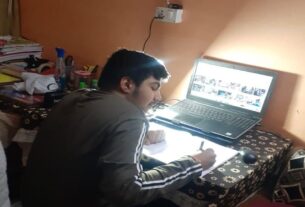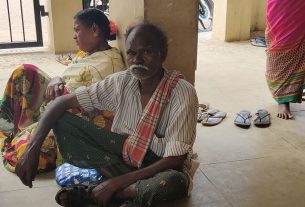A CAG report shows that more than 100 ‘ineligible beneficiaries’ have received financial assistance under the ‘Bidaai’ scheme by the Government of Karnataka.
By Jagriti Parakh
A recent report of the Comptroller and Auditor General of India shows that the Department of Minority Development of Karnataka has extended financial assistance of Rs. 50 lakhs (Rs. 50,000 each) to ineligible beneficiaries on account of the non-verification of documents submitted by the beneficiaries. These ineligible beneficiaries involve people who do not hold BPL cards, as well as brides and bridegrooms under the age of 18 and 21 respectively.
The report specifies that out of 4,208 beneficiaries in Bengaluru (Urban) from October 2017 to March 2018, the age of 59 brides and 10 bridegrooms on the date of marriage as indicated in the documents provided for age-proof was less than 18 years and 21 years respectively.
Though the conditions of the scheme prohibit the extension of financial assistance to minors and also the Prohibition of Child Marriage Act, 2006 prohibits marriage of under-aged individuals, the department had extended the scheme to minors. The financial assistance extended to these 69 beneficiaries was Rs. 34.50 lakh.
On further investigation, it was observed that the documents submitted in support of annual income, caste certificate and date of birth of 31 beneficiaries in Bengaluru were forged. The certificates were cross-verified with the information available on the Government websites, which indicated that the original document varied with that produced to the department. Three Tehsildars (Bengaluru North, Bengaluru South, and Yelahanka) confirmed that the caste certificates produced by 11 beneficiaries were not original.
Siddeshwara N., Director, Department of Minority Development, Bangalore, said, “We have initiated an investigation into the matter. Our officers are supposed to check and cross-verify all the documents. Actions will be taken against those who are responsible.”
Despite legal barriers, many families still practice the traditions from the long-gone era.
Dr. Vinay Kaura, a child protection specialist with Unicef in India, said, “Almost everyone knows that there is a law in place against child marriage, but it still takes place as societal norms, family tradition, financial and other pressures push people into breaking these rules. Even though it isn’t a gender-specific issue, more girls than boys fall prey to the ills of child marriage, because of various social and biological factors.”
Sumana, a 19-year-old, said, “My mother died young, so my father raised me single-handedly. He had always wanted to get rid of me, and hence all his responsibilities. When I was 15 years old, my father got me married to a 27-year-old man, who worked as a laborer. My father applied for financial assistance under the government scheme. He did not even use the entire amount for my wedding. He gave me Rs. 8000 and kept the rest of it to himself.”
Soon after marriage, Sumana started working as domestic help. She was unhappy with the marriage and asked for help from her master’s wife. Later, she was rescued by a volunteer of a child rights NGO in Bengaluru. She lives alone now but is yet to divorce her husband.
This doesn’t end here for the victims of child marriage. In fact, this is where it begins, because the legal proceedings to get them out of the marriage are complicated, time-consuming and expensive.
Pramila Nesargi, a lawyer, educationist, and a women’s rights activist, said, “Divorce takes longer to rule on and is very expensive. The victims can initiate an annulment case. For an annulment, one only has to prove that they were underage at the time of marriage, if it can be proven, the marriage will be considered null and void by the court. This process can take between three days and six months.”
Many people also reach out to various NGOs that are working to protect the rights of children.
Nagamani CN, Coordinator of Childline at Child Rights Trust, said, “The Prohibition of Child Marriages Act came into existence more than a decade ago. Even today we receive complaints on our helplines regarding child marriages happening in the city. In 2018-19, we had received more than 85 complaints against child marriage on our childline helpline.
If we receive complaints before the wedding, we try to prevent the marriage. Otherwise, we rescue children after marriage and present them before the Child Welfare Committee.”




